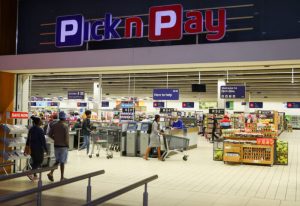A South African grocery retailer Pick n Pay is set to exit the Nigerian market by selling its 51% stake in a joint venture, as part of a broader restructuring strategy outside its home market. The CEO Sean Summers announced on Monday as reported by Reuters.
Pick n Pay, which entered Nigeria less than five years ago through a partnership with A.G. Leventis, currently operates two stores in the country.
The grocery retailer braved the odds to enter the Nigerian market four years ago when other giants in the retail industry had planned to exit the country.
The exit comes amidst plans by the federal government to attract much-needed foreign investment in the country.
Consumer goods companies in Nigeria has been blighted by inflation which has eroded the purchasing power of Nigerians coupled with significant depreciation of our currency, the Naira.
In June 2024, another South African retailer- Shoprite announced the closure of its Abuja store citing harsh business climate in Nigeria which has negatively impacted its financials. The closure of Shoprite’s business in Abuja in June follows a similar closure of Shoprite’s store in Kano in January 2024.
Profitability remains a significant challenge for many retail operators managing supermarkets, discount stores, and grocery outlets across Nigeria.
The rising cost of operations and persistent inflationary pressures are pushing numerous companies, including small and medium-sized businesses, out of the market.
Earlier, Jumia announced the complete shutdown of its food delivery arm, Jumia Food, in Nigeria, citing a difficult business environment and challenges in achieving sustainable profitability.
Also recently, Diageo sold off its 58.02% stake in Guinness Nigeria Plc effectively signalling its exit from Nigeria.
In recent years, several prominent companies, including multinationals like GSK, Procter & Gamble, Sanofi, and more recently, Kimberly-Clark, have exited Nigeria, citing challenges such as foreign exchange constraints, rising energy costs, and dwindling consumer purchasing power amid high inflation.
Over the past 18 months, inflation has surged from around 24% to a peak of 34.19%—a 28-year high—driven primarily by soaring food and transportation costs.
Additionally, the naira has depreciated by more than 100% in the last year, dropping from about N462/$ to over N1,600/USD, following the unification of the forex market and the Central Bank of Nigeria’s efforts to narrow the gap between the official and parallel exchange rates.



